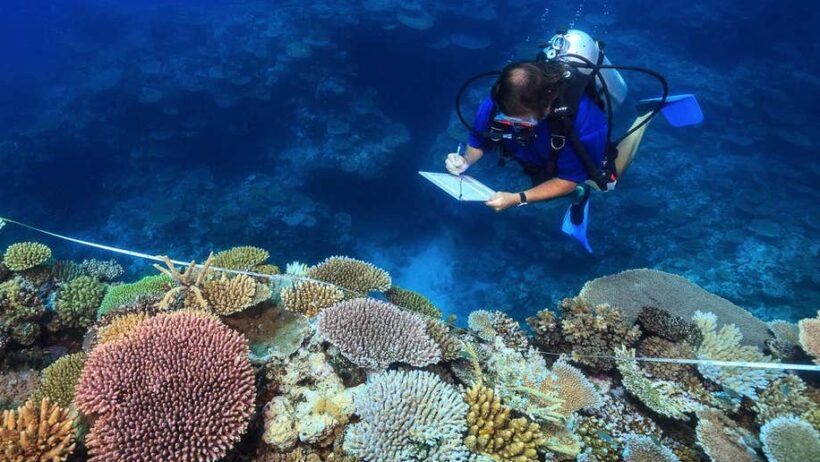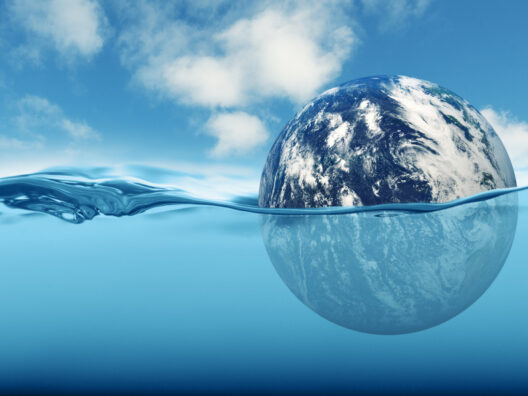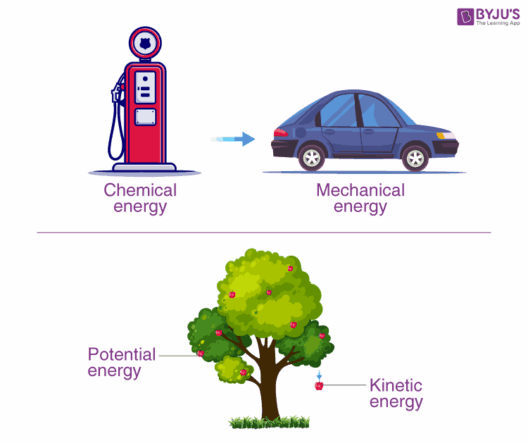Coral reefs, often referred to as the “rainforests of the sea,” constitute some of the most biodiverse ecosystems on the planet. However, they are undergoing a catastrophic decline, primarily due to climate change. This article delves into the multifaceted reasons behind the dying of coral reefs, with a particular emphasis on the pivotal role of global warming.
To comprehend why coral reefs are dying, we must first understand their biology and ecology. Coral reefs are formed from colonies of tiny animals called polyps, which secrete calcium carbonate to create a hard skeleton. These structures support a myriad of marine life, providing habitat, food, and shelter for countless species. Yet, the delicate balance that sustains these ecosystems is increasingly threatened by human activities, primarily linked to climate change.
One of the most significant contributors to the deterioration of coral reefs is the increase in seawater temperature. The oceans are absorbing about 90% of the excess heat generated by greenhouse gas emissions, leading to thermal stress on coral polyps. This stress often results in a phenomenon known as coral bleaching, where corals expel the symbiotic algae (zooxanthellae) that provide them with color and essential nutrients. Without these algae, corals lose their vibrant hues and face starvation, compromising their health and survival.
Evidence of coral bleaching events has grown in frequency and intensity. Reports show that global warming has led to an alarming rise in the number of reefs experiencing bleaching. During the formidable El Niño events, for instance, elevated sea temperatures have caused widespread bleaching, killing significant portions of reefs in the Caribbean and the Great Barrier Reef. The impacts of these events are not just aesthetic; they have dire repercussions for biodiversity, fisheries, and coastal protection.
Apart from rising temperatures, ocean acidification is another critical factor threatening coral reefs. The absorption of excess carbon dioxide by the ocean results in a chemical reaction that lowers the pH, making the water more acidic. This increased acidity interferes with the ability of corals to calcify, significantly hindering their growth and structural integrity. As the oceans continue to acidify, the long-term implications for coral reef ecosystems are dire. We are witnessing a decline in the number of reef-building corals, which fundamentally alters the habitat structure and the multitude of species that rely on these ecosystems.
The effects of global warming extend beyond temperature and acidity; they also manifest through extreme weather events. Rising sea levels, brought about by melting polar ice and thermal expansion of seawater, pose another significant threat. Coastal erosion exacerbates the loss of mangroves and seagrasses, which play critical roles in protecting coral reefs from sediment runoff and providing nursery grounds for various marine species.
Moreover, ocean currents are influenced by climate change, altering nutrient distributions and mixing. These currents are vital for maintaining the health of coral reefs; disruptions can lead to nutrient-poor environments that may not sustain the diverse marine life that coral reefs support. Here, we encounter a vicious cycle where deteriorating reef health leads to diminished fish populations, impacting local fisheries and further threatening coastal communities dependent on these resources.
The human footprint remains a persistent threat to coral ecosystems, intensifying the impacts of climate change. Overfishing depletes key species that help maintain the ecological balance on the reefs. Meanwhile, pollution, particularly runoff from agricultural practices, introduces harmful chemicals and sediments, leading to coral diseases and inhibiting growth. These threats are compounded in regions where tourism and coastal development have led to habitat destruction and increased marine traffic, further stressing coral ecosystems.
Given the stark realities facing coral reefs, immediate action is paramount. Efforts to mitigate climate change must take precedence. Transitioning to renewable energy sources, enforcing stricter regulations on carbon emissions, and advocating for sustainable practices in industries such as agriculture and fishing are critical steps toward safeguarding coral reefs and their ecosystems. International cooperation and policies aimed at reducing greenhouse gas emissions will be paramount in ensuring that coral reefs have a fighting chance.
In addition to mitigation, adaptive strategies are vital for the resilience of coral reefs. This includes promoting marine protected areas, enhancing sustainable fishing practices, and restoring degraded reefs through coral gardening techniques. Investment in research to increase our understanding of coral biology and ecology can also provide insights into developing resilient coral species that may withstand changing conditions.
Public awareness and education play crucial roles in fostering a greater understanding of the urgency surrounding coral reef conservation. Engaging local communities in monitoring and protecting marine ecosystems can yield positive outcomes. Grassroots movements, coupled with governmental and non-governmental support, can create significant change at local and global levels.
As stewards of the planet, it is our collective responsibility to address the multifaceted threats that contribute to the decline of coral reefs. By tackling climate change head-on, enforcing sustainable practices, and raising awareness, we can preserve these vital ecosystems for future generations. The fate of coral reefs is inexorably tied to our actions; it is incumbent upon us to act now before it is too late.








